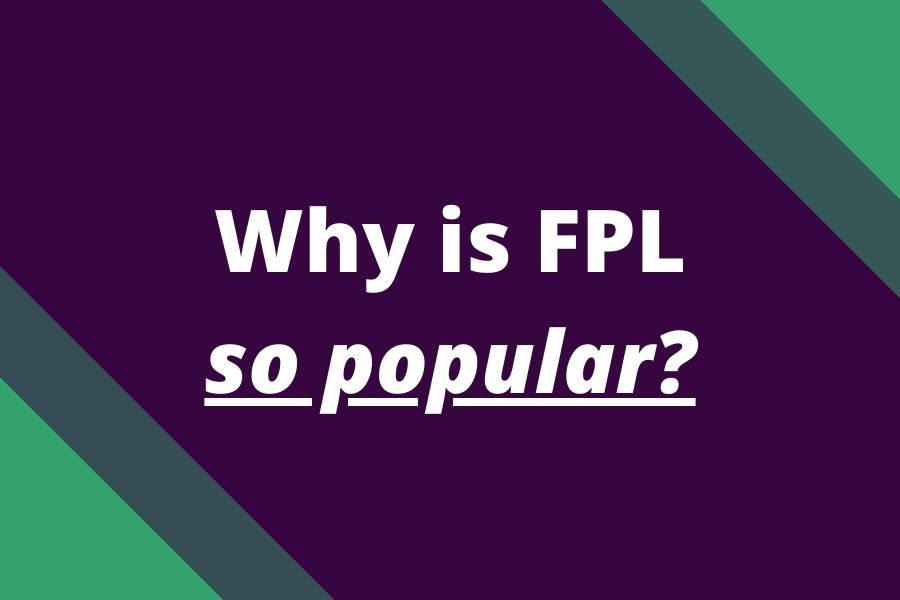Fantasy Premier League (FPL) is more than just a game – it’s a global phenomenon that has captivated the hearts and minds of football fans around the world. With millions of players competing each season, FPL has become a staple of football culture, transforming the way fans engage with the sport.
But what is it about this virtual game that has made it so popular? This article delves into the world of FPL, exploring its rise to prominence and the factors that contribute to its widespread appeal.
What is Fantasy Premier League?
Fantasy Premier League is an online game where players become managers of virtual football teams made up of real-life Premier League players. Each player is assigned a price, and managers have a budget with which they must build their team. The performance of these players in real-life Premier League matches determines the points earned in the game.
Managers must consider a variety of factors when selecting their team, including player form, upcoming fixtures, and injury status. They also have the ability to transfer players in and out of their team throughout the season, adding a strategic element to the game.
FPL is not just about selecting the best players, but about finding value, predicting performance, and managing resources effectively. It’s a game that combines the passion of football with the thrill of strategy, making it a compelling experience for fans of the sport.
Read more: Fantasy Premier League: How to play
The Rise of Fantasy Premier League
Since its inception, Fantasy Premier League has seen a meteoric rise in popularity. What started as a niche game for football enthusiasts has grown into a global sensation, with millions of players participating each season.
The growth of FPL can be attributed to several factors. The rise of the internet and social media has made it easier for players to access the game and share their experiences with others. The global popularity of the Premier League has also played a significant role, as fans from around the world seek to engage with the sport in a more interactive way.
Furthermore, the competitive nature of FPL, with leagues and rankings, adds an element of excitement and rivalry that extends beyond the football pitch. The game has also been embraced by the football community, with clubs, players, and media outlets regularly engaging with FPL content.
The result is a game that has transcended the boundaries of traditional sports fandom, creating a unique and engaging experience that continues to attract new players each season.
Read more: When did FPL start? History of Fantasy Football
Why is Fantasy Premier League So Popular?
Fantasy Premier League’s popularity can be attributed to a combination of factors. First and foremost, it leverages the global popularity of football, particularly the Premier League, which is one of the most watched sports leagues in the world. By allowing fans to create their own teams and compete against others, FPL provides a new and interactive way to engage with the sport.
The competitive aspect of FPL is another major draw. Players compete in leagues against friends, family, and strangers, adding a layer of rivalry and competition to the football season. The thrill of seeing your team climb the rankings can be incredibly satisfying, and the bragging rights that come with a successful season are a significant motivator for many players.
FPL also has a strong social aspect. Whether it’s discussing player selections, sharing triumphs and disappointments, or simply bantering with rivals, FPL has fostered a vibrant community of fans. Social media platforms, forums, and podcasts dedicated to FPL provide spaces for these discussions, further enhancing the social experience of the game.
Finally, FPL appeals to the strategist in every football fan. The game requires careful planning, shrewd decision-making, and a deep understanding of football. The challenge of managing a team within a budget, predicting player performance, and navigating the ups and downs of the football season can be deeply engaging, providing a sense of accomplishment when decisions pay off.
At Fantasy Football Reports we use a variety of optimization methods and probabilities to help us with our decision-making process. Check out the articles:
- 7 Key Tips for Fantasy Premier League Success
- Managing risks in the FPL
- What is xG and how to use Expected Goals in FPL?
The Impact of Fantasy Premier League on Football and Fans
Fantasy Premier League has significantly changed the way fans engage with football. It has made fans more invested in matches beyond those of their favorite teams, as the performance of individual players can impact their FPL team. This has broadened the interest of fans, making them more knowledgeable about the league as a whole.
FPL has also changed the way fans view players. Rather than just supporting players from their favorite team, fans now have a vested interest in players from various teams. This has led to a greater appreciation of individual player performances and a deeper understanding of the sport.
Moreover, FPL has created a new form of fan engagement. The social and competitive aspects of the game have fostered a sense of community among fans, creating new connections and conversations around the sport.
Read more: 4 book that will help you improve your FPL skills
Conclusion
Fantasy Premier League has transformed the landscape of football fandom. Combining the passion of football with the thrill of strategy and competition, it has created a unique and engaging experience for fans. Its rise in popularity is a testament to the evolving ways in which fans interact with sports, and it’s likely that FPL will continue to captivate fans for many seasons to come.
FAQ
How does scoring work in Fantasy Premier League?
Scoring in FPL is based on the real-life performances of players. Points are awarded for actions such as scoring goals, providing assists, and keeping clean sheets, while points can be deducted for actions such as receiving yellow/red cards or conceding goals.
Can I change my team during the season?
Yes, FPL allows managers to make transfers during the season. However, the number of free transfers is limited, and additional transfers can result in points deductions.
How can I improve my Fantasy Premier League performance?
Improving in FPL requires a combination of football knowledge, strategic planning, and careful decision-making. It’s important to stay updated on player form, fixture difficulty, and injury news. Participating in FPL communities can also provide valuable insights and advice.
Further resources
- Official Fantasy Premier League Website
- Premier League Official Website
- BBC Sport article on the growth of FPL



![3 Best Captain Picks for FPL GW4 [Captaincy Index] fpl best captain picks](https://www.fantasyfootballreports.com/wp-content/uploads/fpl-best-captain-picks-150x150.jpg)
